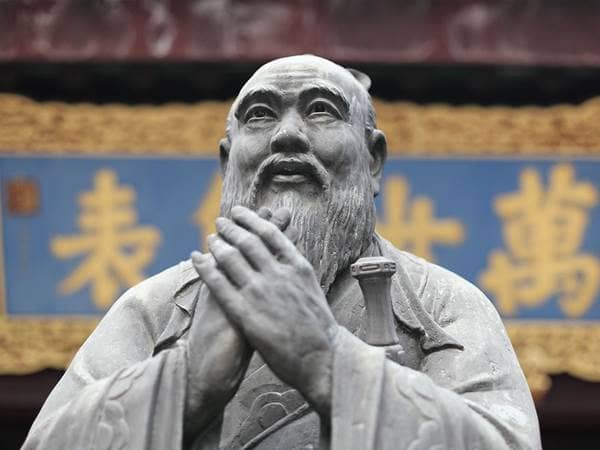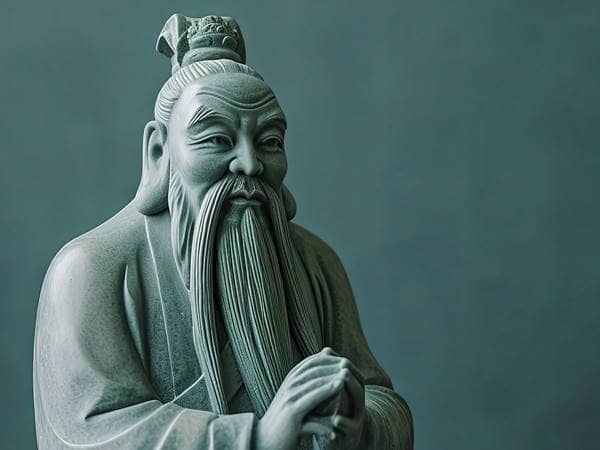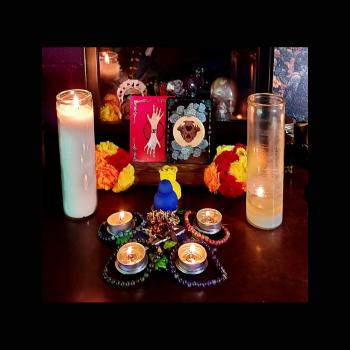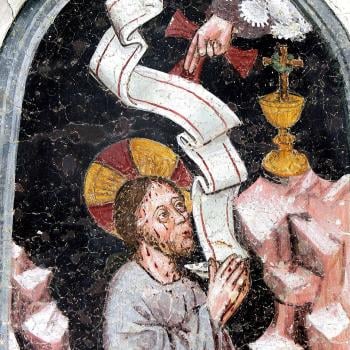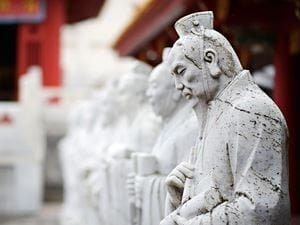
In order to grasp where Confucianism stands on God, it is important to understand a couple of alternate “theologies” with similar (yet distinct) beliefs about the divine. For example, atheism and agnosticism both place some doubt on the existence of God and the reality of an afterlife.
However, these two systems of belief are distinct from each other, in that atheists tend to be emphatic that God does not exist, whereas agnostics are more prone to say that they simply don’t “know” if there is a God or a life after this one.
In addition to atheism and agnosticism, there is another seemingly non-committal belief system that takes a unique position on the existence of the divine. This is often referred to as a “non-theistic” view of God. Non-theistic religions typically have founders, religious leaders (and/or practitioners of aestheticism), sacred space and often sacred texts, and even rites or rituals. However, non-theists have no construct of God at the center of their faith.
For them, God is a “non-issue,” as it were. Some of the most famous non-theistic traditions include Theravada Buddhism, Jainism, Reconstructionist Judaism, Philosophical Taoism, and (you guessed it) Confucianism.
Many scholars of Confucianism believe that Confucius (sometimes referred to as “Master Kong,” “Kong Qiu,” or “K’ung Fu-tzu”) was himself a believer in God. However, Confucianism (like its sister religion, Taoism) is more concerned with the here and now, with a person’s ethics and morality, than it is with the existence of God or the afterlife.
Thus, God (whether in polytheistic or monotheistic form) is simply not a subject of Confucian teachings. Confucious once rhetorically asked, “Till you have learned to serve men, how can you serve ghosts” or gods? In other words, how can you serve a deity that you can’t see when you do such a poor job at serving humans that you can see? So, rather than teaching that there is one God or a bunch of gods, Confucious instead focused on the moral development of his people, with the understanding that—for the person who became a “Confucian gentleman” (or commandingly ethical person)—the afterlife would take care of itself.
He certainly believed that heaven (or “Tian”) was the source of any human potential or realization. And yet, Confucious apparently taught that “heaven rarely, if ever, communicates with humans”—implying that he didn’t think that God (in whatever form the divine took) was a being that we could expect revelation from or interaction with.
Of course, some point out that there are Confucianists who emphatically believe in a God or multiple gods. While that is true, there is context to their beliefs. Confucianism typically mixes with other religions and traditions in the countries in which it is found. Thus, in places like Korea or China, it is often very challenging to separate Confucianism from other religions in the region—like Buddhism or Taoism.
Indeed, most who consider themselves Confucian also consider themselves Buddhist, Taoist, Shinto, or perhaps even Christian. Confucianism rarely exists on its own. As a result, most practitioners of Confucianism, if they believe in a God or gods, draw that belief not from Confucianism but from whatever other religion they practice. If that other religion is Christianity, then they are most likely monotheistic. If that other religion is Shinto or Religious Taoism, they are probably polytheistic.
Regardless, Confucianism itself is formally neither monotheistic, polytheistic, atheistic, or agnostic. It is almost certainly best labeled as a “non-theistic” tradition that virtually always mingles with some theistic tradition, making it appear like it has a God (or gods) but, in reality, it doesn’t.
5/10/2024 4:23:12 PM


